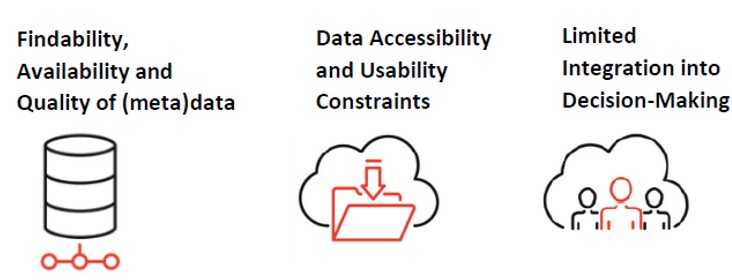The STARS4Water project recently released its first Policy Brief on “Unlocking global data for tailormade water management strategies in Europe“.
This Policy Brief highlights how the STARS4Water project supports adaptive water management in Europe by addressing critical challenges in data accessibility, usability, and integration. Climate change is intensifying water-related risks—such as droughts, floods, and ecosystem degradation—necessitating robust, data-informed planning at the river basin level. STARS4Water responds by unlocking global datasets, enhancing data services, and promoting stakeholder-driven, co-created solutions in seven River Basin Hubs (RBHs).
Key challenges have been identified through a participatory process with the stakeholders of the RBHs, and include: difficulties in locating and assessing relevant datasets, limited accessibility due to fragmented ownership and licensing barriers, and poor integration of data into decision-making frameworks. Stakeholders emphasized the need for more user-friendly formats, better metadata, and improved cross-sectoral coordination.

Global and supra-regional datasets were found to offer significant added value, especially when local data is lacking. They help fill data gaps, support trend analysis, inform scenario planning, and enable harmonized cross-border water management. Examples include the use of global data in the Messara and Seine basins to complement local monitoring, and in the Drammen basin to develop machine learning models for snowmelt estimation.
The brief presents six key recommendations, including: establishing co-creation hubs; demonstrating global data use through practical pilots; aligning datasets with stakeholder needs; investing in capacity-building and visualization tools; advancing AI-based modelling; and promoting FAIR data practices via the STARS4Water metadata portal. Together, these actions aim to transform the way water data is accessed and applied in Europe, aligning with broader goals under the forthcoming European Water Resilience Strategy.
The Policy Brief itself can be found here.




